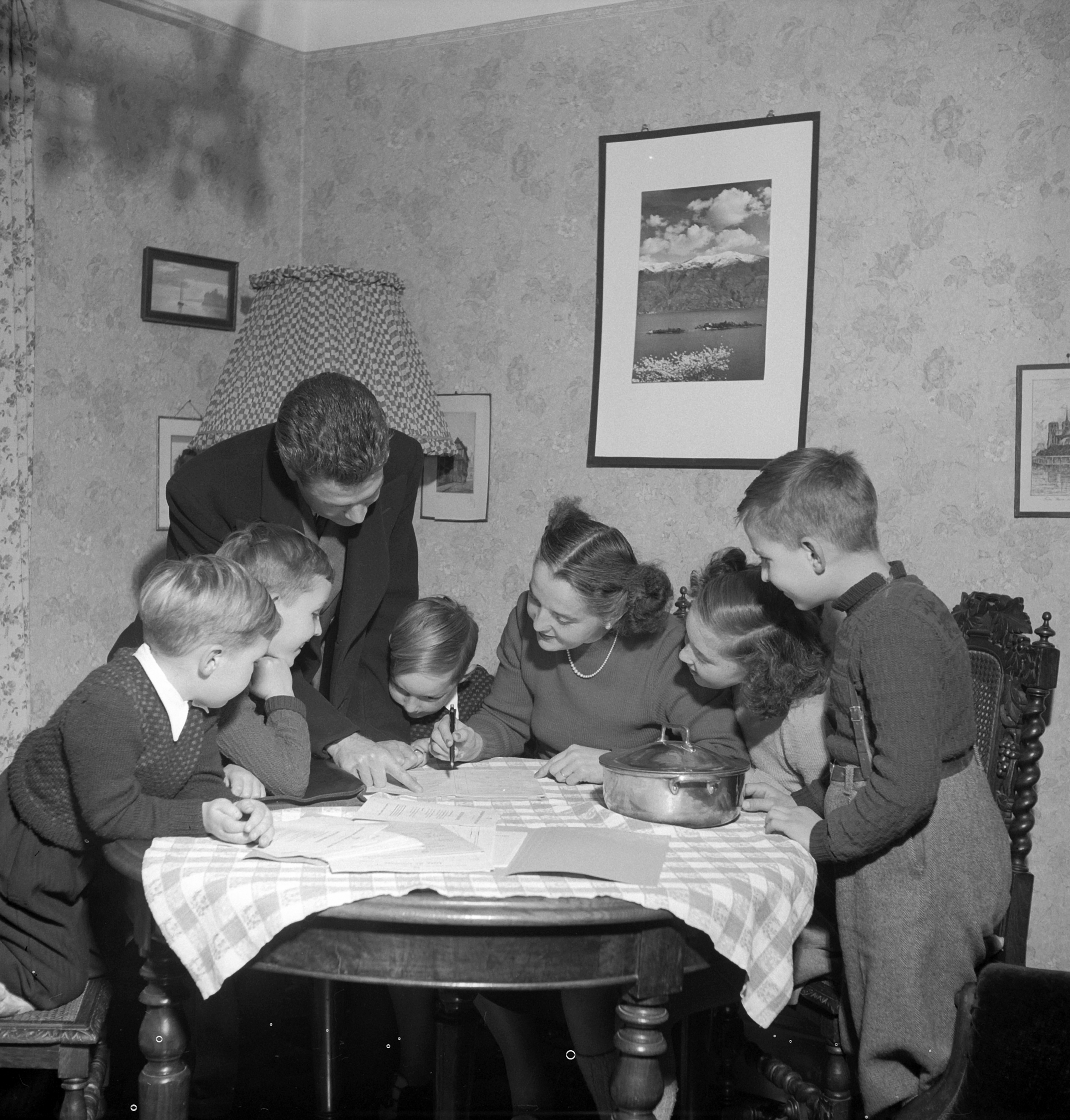Swiss census to get a makeover

As far back as Biblical times, people were counted for government purposes. Even the Christmas story involves a census.
According to the gospel of Luke, Joseph had to register in his old hometown of Bethlehem. It was during this trip that his fiancée Mary gave birth to Jesus – in a humble stable because Bethlehem’s inns were bursting with all the other census participants.
Fortunately, modern-day residents have it a bit easier than the holy family did. Traditionally, the census takers have come to them.
That was the case in Switzerland from 1850 to 1990, when enumerators knocked on the door of every dwelling once every ten years. Since then, the Federal Statistics Office has asked every household to mail in its completed questionnaire.
But this system is about to become Swiss history. Starting on December 31, 2010, the Statistics Office will conduct its federal census in a new way. Rather than just once per decade, it will be annual.
It may sound like more work, but in fact, the new method is expected to save time and money, according to Statistics Office Director Jürg Marti. It will also cover a broader range of topics.
Who counts?
Only a small proportion of the population (about five per cent) will be questioned, either in writing or by telephone. To ease the burden on the population, most of the information will be drawn from municipal records and supplemented by sample surveys.
Each year, about 200,000 people will be chosen at random to complete a questionnaire providing further information on family, housing, employment, education, language and religion.
In addition, 10,000-40,000 people will be interviewed by phone on topics such as “health”, “mobility and transport”, “education and training”, “families and generations”, and “language, religion and culture”. The individual themes will be tackled in rotation – in other words, once every five years.
Meanwhile, the Statistics Office will ask another 3,000 people per year about current affairs to see how they respond to political or scientific questions.
“Switzerland is obtaining a modern statistical system, which makes it possible to observe on a continuous basis the structures and the development of the population and households, as well as of buildings and dwellings,” wrote the Statistics Office in a statement released on Tuesday.
A planning tool
The census provides demographic statistics related to age, the number of foreigners in Switzerland, the labour market, commuting behaviour and many other factors.
The data serves to help the political, economic and societal systems to develop strategies for the future. In municipalities and cantons, the figures are used in planning infrastructure such as schools and nursing homes.
“Thanks to this new census, today’s greatly accelerated economic and social change can be analysed much more effectively. At the same time, approximately SFr100 million ($105 million) can be saved compared with the traditional census,” said the Statistics Office.
The structural changes in the census are a complex undertaking as they require the 3,000 Swiss municipalities, the 26 cantons and the federal government to strengthen and harmonise their registers.
A Register Harmonisation Act has been in effect since January 2008; it creates the conditions for the smooth exchange of data.
For the 2010 census, the UN Economic Commission for Europe (UNECE) and the Statistical Office of the European Union (Eurostat) have adopted recommendations to simplify the international comparison of population and building censuses. Switzerland is also governed by these guidelines.
Head-counting was also done in the days of the Helvetic Republic. While determining the number of residents, the census of 1798/1799 provided a picture of political communities and place names.
It was 1850 when modern Switzerland conducted its first federal census. The initiator was Interior Minister Stefano Franscini (1796-1857).
The Federal Statistics Office in Neuchatel is responsible for the census. In 1860, it had four employees and an annual budget of SFr20,000 ($20,720). Today there are 760 people and a budget of SFr160 million.
In 1990, many boycotted the census in the wake of a scandal involving the authorities using census information for Cold War investigation purposes. Those who refused to participate in 1990 had to pay a fine.
In 2000, most (97.3%) cooperated. Starting in that year, people had the chance to complete the questionnaire online; 4.2% of the population did so.
For reasons of cost and efficiency, many countries are rethinking the way they conduct their censuses. One trend is the use of existing data. For example, countries in northern Europe have been working from records for several years now.
Starting in 2011, Italy, Spain and others will use mixed methods, as do nations like Switzerland, Germany and Holland. These countries complement registry data with field surveys (old and new) or head-counts.
France has been carrying out a complex census since 2004; the results are the product of a five-year rolling average that is updated every year.
Since 2004, the United States has been using a method that combines a short census every 10 years with a comprehensive annual survey of a portion of the population.
20 European countries still use the traditional method – the enumeration of residents on the ground and via an information form.
This is the case in Britain, Ireland, Greece and Portugal; however, Britain plans to stop this after 2011.
Since 2006, Australian residents have been able to participate in the census online.

In compliance with the JTI standards
More: SWI swissinfo.ch certified by the Journalism Trust Initiative













You can find an overview of ongoing debates with our journalists here . Please join us!
If you want to start a conversation about a topic raised in this article or want to report factual errors, email us at english@swissinfo.ch.